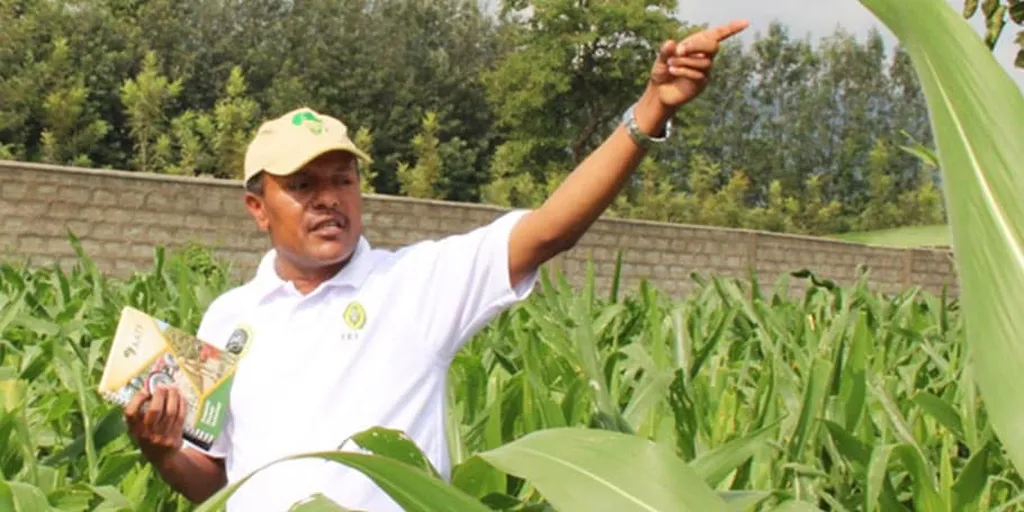In the rolling highlands of Ethiopia’s Amhara Region, a pressing challenge looms large: declining soil fertility and increasing acidity are stifling maize productivity, a staple crop for millions. But a recent study published in the *Journal of Agriculture and Food Research* offers a glimmer of hope, demonstrating how integrated soil fertility management (ISFM) could revolutionize maize farming in acid-affected soils. The research, led by Habtamu Tadele of Debre Markos University and Bahir Dar University, explores the synergistic effects of nitrogen and phosphorus (N/P2O5), maize cob biochar (BC), and vermicompost (VC) on maize yields, profitability, and sustainability.
The study, conducted over two years (2023/24–2024/25), employed a factorial randomized complete block design (FRCBD) to test various combinations of N/P2O5, BC, and VC on acidic Nitisol. The results were striking. The optimal treatment, combining 120/69 kg N/P2O5, 4 t BC, and 5.02 t VC per hectare, produced a remarkable 12.09 t ha−1 of grain yield (GY) and delivered the highest net benefit of 289,124 Ethiopian Birr per hectare (approximately 2,131 USD ha−1), with a marginal rate of return (MRR) of 3,949.82%.
“These findings highlight the potential of integrated nutrient strategies, particularly the optimal treatment, for enhancing maize productivity and profitability in acid-affected soils,” Tadele explained. “The strong positive correlations between grain yield and sustainable yield index, as well as between agronomic use efficiency and partial factor productivity, underscore the efficiency of this approach.”
The study also revealed that vermicompost could substitute 23.9 kg of nitrogen per tonne, offering a cost-effective solution for smallholder farmers. However, the research cautioned that excessive nutrient application could lead to diminishing returns, emphasizing the need for balanced and integrated soil fertility management.
The implications of this research extend far beyond the fields of Northwestern Ethiopia. As global food demand grows and agricultural systems face increasing pressures, the insights from this study could shape future developments in sustainable farming practices. The integration of biochar, vermicompost, and inorganic nutrients presents a promising pathway to enhance crop yields while maintaining economic viability and environmental sustainability.
“Our findings suggest that integrated soil fertility management can significantly improve maize productivity and profitability, even in challenging soil conditions,” Tadele noted. “This approach not only addresses the immediate needs of farmers but also contributes to the long-term sustainability of food production systems.”
As the world grapples with the complexities of feeding a growing population, the research published in the *Journal of Agriculture and Food Research* (translated to *Journal of Agriculture and Food Research*) offers a beacon of hope. By embracing integrated soil fertility management, farmers and policymakers can pave the way for a more sustainable and prosperous future in agriculture.

